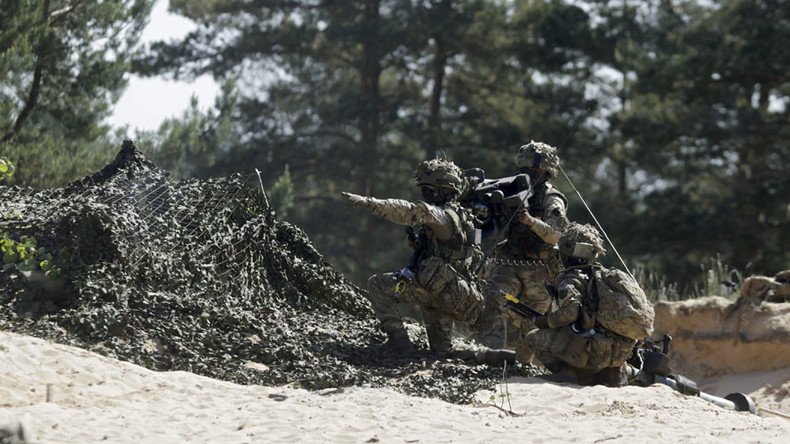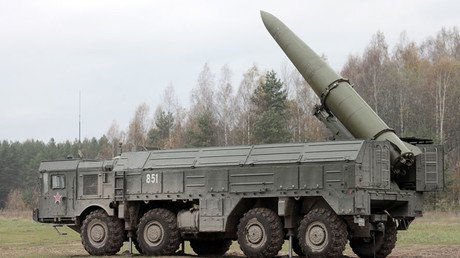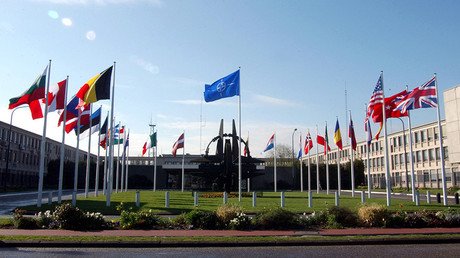Germany mulls sending NATO troops to Lithuania – defense official

NATO is looking at a number of strategies to boost its presence in Eastern Europe, including sending German troops to Lithuania, according to German media citing a Defense Ministry spokesman.
“There are various models under preliminary discussions and voting in NATO is underway,” the ministry’s spokesman Jens Flosdorff told the DPA news agency. “Decisions will be made this fall at the NATO summit in Warsaw.”
The remark confirmed Thursday’s reports that the country’s military was ready for a broader engagement to protect NATO’s eastern frontiers. The military alliance is to meet in the Polish capital Warsaw in July. The 28 member states are expected to agree on a roadmap to enhance combat readiness in Eastern Europe amid what NATO Secretary General Jens Stoltenberg has described as a challenging regional security situation.
Der Spiegel reports that German armed forces may send some 1,000 soldiers to take part in the NATO mission in Lithuania if the alliance's members approve the plan.
In March, Lithuanian Foreign Minister Linas Linkevicius said he hoped Germany would support the need to increase NATO's military presence in the Baltic States. He urged NATO not to rush to get back to normal dialogue with Russia as long as Moscow does not change its “aggressive policy.” NATO suspended all military cooperation with Moscow in the aftermath of Crimea’s accession to Russia.
According to Linkevicius’ comments made for the American newspaper Politico, a true partnership between Russia and NATO can only be restored if Moscow takes steps to withdraw its troops from Ukraine and ceases to carry out military exercises and military aircraft flights in the Baltic Sea.
Russia’s Foreign Minister Sergei Lavrov singled out Lithuania as the “most aggressive, Russo-phobic country” within NATO, adding it is pushing the alliance in an “anti-Russian direction.”
“After they [the Baltic nations] became free - the way they perceive it - and independent, after they proclaimed all the decisions concerning their sovereignty, they began to strive for NATO membership,” Lavrov said in an interview published Friday in the Swedish Dagens Nyheter newspaper.
“Moscow didn't make a single attempt to pull them back, to say nothing of using force against them […] they were admitted to NATO but failed to develop any kind of tranquility and this particularly concerns Lithuania. It now makes up the most aggressive and Russo-phobic kernel within NATO,” he said.
Anti-Russian rhetoric, however, does not sit well with citizens of NATO member-states. As a recent Pew Research Center poll revealed, majorities in such NATO states as Germany (56 percent), Italy (51 percent) and France (53 percent) oppose the idea of protecting the Baltic States from a “military threat” allegedly posed by Russia. According to the poll, some 58 percent of Germans surveyed do not deem Russia a threat to their country, with 49 percent firmly against the idea of permanent deployment of NATO forces in Poland or any of the Baltic States.
Last week, permanent envoys from Russia and NATO member states met for the first time in two years. The meeting failed to yield any significant results due to “profound and persistent disagreements” on a number of geopolitical issues.
NATO has been increasing its military presence in Eastern Europe and the Black Sea since the Ukrainian crisis began in 2014, in response to what it considers Russia's aggression. Moscow has repeatedly dismissed accusations related to Ukraine, at the same time stressing that increased NATO activities near Russian borders could undermine both regional and global stability.














